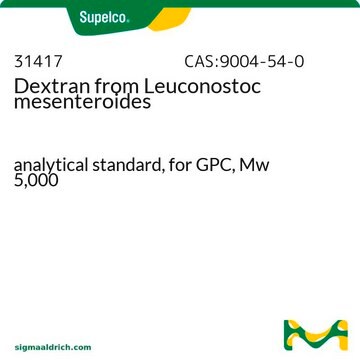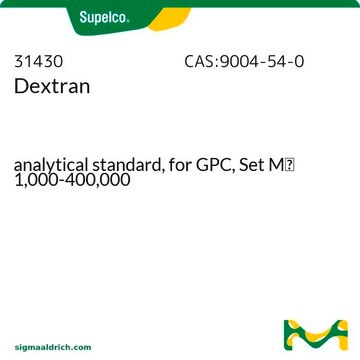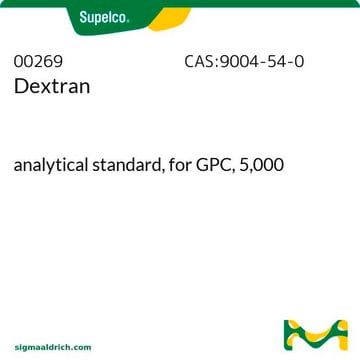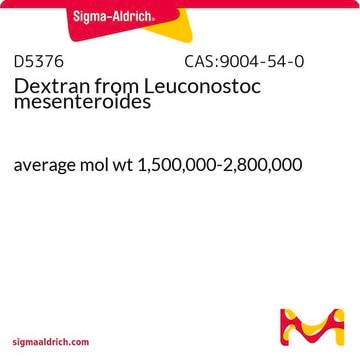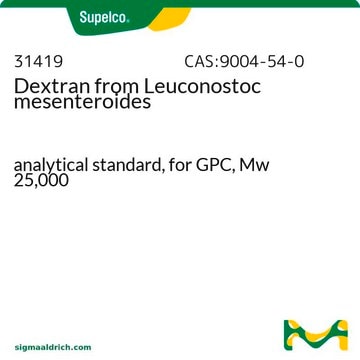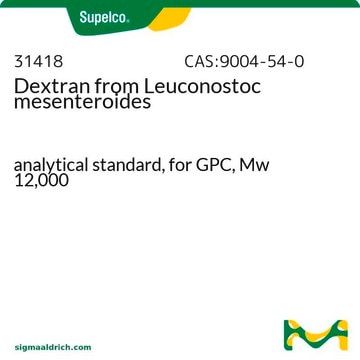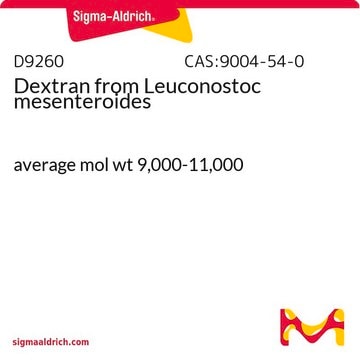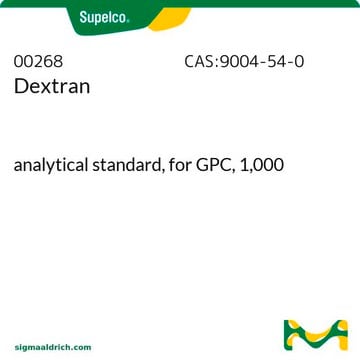31416
Dextran from Leuconostoc mesenteroides
analytical standard, for GPC, Mw 1,000
About This Item
Recommended Products
grade
analytical standard
for GPC
Quality Level
mol wt
Mn ~1,000
Mp ~1,100
Mw ~1,300
analyte chemical class(es)
oligosaccharides
technique(s)
gel permeation chromatography (GPC): suitable
Mw/Mn
~1.30
application(s)
food and beverages
format
neat
InChI
1S/C18H32O16/c19-1-5(21)9(23)10(24)6(22)3-31-17-16(30)14(28)12(26)8(34-17)4-32-18-15(29)13(27)11(25)7(2-20)33-18/h1,5-18,20-30H,2-4H2
InChI key
FZWBNHMXJMCXLU-UHFFFAOYSA-N
Looking for similar products? Visit Product Comparison Guide
Related Categories
General description
Application
Storage Class Code
11 - Combustible Solids
WGK
WGK 2
Personal Protective Equipment
Choose from one of the most recent versions:
Already Own This Product?
Find documentation for the products that you have recently purchased in the Document Library.
Customers Also Viewed
Related Content
Dextrans are polysaccharides with molecular weights ≥1,000 Dalton, featuring a linear backbone of α-linked d-glucopyranosyl repeating units.
Dextrans are polysaccharides with molecular weights ≥1,000 Dalton, featuring a linear backbone of α-linked d-glucopyranosyl repeating units.
Dextrans are polysaccharides with molecular weights ≥1,000 Dalton, featuring a linear backbone of α-linked d-glucopyranosyl repeating units.
Dextrans are polysaccharides with molecular weights ≥1,000 Dalton, featuring a linear backbone of α-linked d-glucopyranosyl repeating units.
Our team of scientists has experience in all areas of research including Life Science, Material Science, Chemical Synthesis, Chromatography, Analytical and many others.
Contact Technical Service